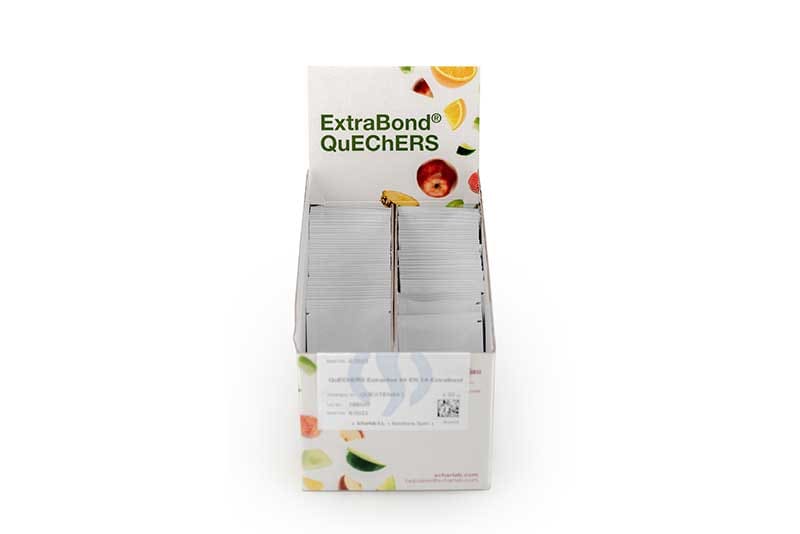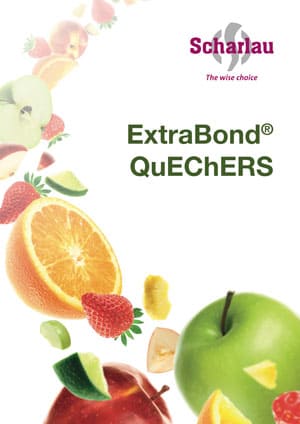Sample preparation with QuEChERS
29 de November de 2023What is the QuEChERS method?
Using QuEChERS to prepare samples for chromatography analysis was an innovative departure from the traditional method. QuEChERS (an acronym for Quick, Easy, Cheap, Effective, Rugged, and Safe) is a fast, easy, cheap, effective, robust and reliable method of multi-residue extraction in fruits and vegetables that combines two stages.
Sample extraction stage: the sample is extracted with acetonitrile and various salts. Internal standard solutions may be used here to check the analyte recovery.
Solid-phase dispersion step: an aliquot of the extract from the extraction step is cleaned up. PSA (SPE adsorbent) and magnesium sulphate are used for this clean-up stage. The chromatographic analysis of the samples may now be carried out.
What are the advantages of QuEChERS over traditional extraction?
When comparing QuEChERS with previous analytical methods, the advantages are remarkable:
- The speed of sample preparation is greatly increased.
- The cost of materials is significantly reduced
- More than 300 pesticides can be determined in a single method.
- Prepared kits provide greater convenience, accuracy and speed.

Beyond fruits and vegetables
Although QuEChERS was originally conceived for the extraction of pesticides from fruits and vegetables, its application has expanded to diverse matrices, including animal products, cereals, wine, juices, coffee, tobacco, soil, and many more.
QuEChERS – Constant evolution
There is no single QuEChERS method. Since its introduction, the method has been modified depending on the matrix or compounds to be extracted. Numerous research groups around the world have contributed to its development, extending its application to natural contaminants, antibiotics, veterinary drugs and mycotoxins.
Scharlau variant EN-A:
Scharlau’s ExtraBond® QuEChERS variant EN-A is the epitome of efficient innovation. By using a smaller aliquot in the dispersion stage, similar results can be achieved using less solid phase, thus producing a more economical kit without compromising quality.
Scharlau kits
Scharlau kits not only meet the relevant standards, but also offer many advantages:
- Extraction Kit 1A: This kit is presented in sachets, instead of tubes, as their application is better suited to the QuEChERS method. When using tubes, the sample must be added to the tube with the salt mixture first, followed by the acetonitrile. This can cause exothermic reactions and potentially reduces the recovery rate. However, with sachets, there aren’t any exothermic reactions, so recovery rates are higher.
- Dispersive Kit 2A: This kit contains less PSA, thus reducing costs but while maintaining the same efficacy. The kit’s tubes are also printed for greater traceability.
- Dispersive Kit 2C: This is the ideal kit for oily samples, such as avocado or nuts, as it contains C18 for optimal sample preparation.
Important considerations
- Solvent choice: Acetonitrile should be used for efficient extractions, as other solvents may not return satisfactory results.
- Function of Magnesium Sulphate: Magnesium sulphate removes water in the extraction stage and further traces during the dispersion stage.
In conclusion, the QuEChERS method is more than just a method; it is a constantly evolving technique for efficient sample preparation in residue analysis. The Scharlau QuEChERS range offers a wide array of products for efficient, reliable sample preparation.
If you have any questions, please ask us at helpdesk@scharlab.com.
Related resources



